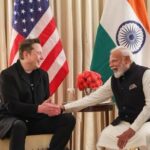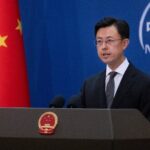North Korean troops have reportedly entered the ongoing conflict in Ukraine, gaining invaluable battlefield experience. This development highlights the strengthening alliance between Russia and North Korea amidst heightened global tensions. The presence of North Korean forces in Ukraine marks a notable shift in the dynamics of the war, as well as in the geopolitical strategies of both Moscow and Pyongyang.
The Rise of a Strategic Alliance
- Background of the Alliance
- Historical Ties: North Korea and Russia have maintained diplomatic relations for decades, with the Soviet Union being one of the first countries to recognize the North Korean state after its establishment. However, the modern-day alliance is driven more by mutual strategic interests than by ideological alignment.
- Recent Developments: In recent years, the relationship between the two nations has warmed, especially as both face increasing international sanctions. Russia has sought to bolster its ties with North Korea, seeing the regime as a valuable partner in circumventing Western sanctions.
- North Korea’s Motivation
- Military Support: North Korea’s participation in the conflict is largely seen as a response to Russia’s need for additional military personnel and resources. Russia, facing a manpower shortage in its prolonged war in Ukraine, is turning to North Korea for assistance.
- Battlefield Experience: For North Korea, the conflict in Ukraine presents an opportunity to gain real-world combat experience. This is significant as it enhances the North Korean military’s readiness and provides them with insight into modern warfare techniques, particularly in the face of Western military aid to Ukraine.
Troops in Ukraine: Roles and Capabilities
- Deployment of North Korean Forces
- Size and Composition: The exact number of North Korean troops deployed to Ukraine remains unclear, but reports suggest that they are primarily engaged in support roles rather than direct frontline combat. These roles may include logistical support, training Russian forces, and potentially engaging in artillery operations.
- Combat Experience: The North Korean soldiers’ involvement provides them with battlefield experience that could improve their tactical capabilities and readiness for future operations. The use of advanced weaponry, particularly artillery, may offer them new insights into modern military strategies.
- Training Russian Forces
- Exchange of Expertise: The North Koreans, particularly in areas such as artillery and infantry tactics, are reportedly assisting Russian forces by sharing their expertise. Russia’s artillery units have been heavily reliant on long-range weapons, and North Korea’s experience with such systems may prove beneficial.
- Boost to Russian Forces: The arrival of North Korean troops is seen as an attempt to reinforce Russian military operations, providing a boost to Russia’s war effort amid significant losses and a slow-moving conflict.
Geopolitical Implications
- U.S. and NATO Reactions
- Rising Concerns: The involvement of North Korean troops in Ukraine raises alarms among Western nations, especially the U.S. and NATO, which are already providing substantial military support to Ukraine. The growing alliance between Russia and North Korea could further complicate the conflict, increasing the potential for broader international involvement.
- Sanctions and Diplomatic Backlash: North Korea’s engagement in Ukraine might provoke additional sanctions from the West, further isolating the nation on the global stage. However, North Korea’s longstanding defiance of international norms may make such sanctions less impactful.
- Strengthening Russia-North Korea Ties
- Military Collaboration: This development marks a significant step in the deepening of military collaboration between Russia and North Korea. Beyond troop deployments, there have been reports of arms deals and the sharing of military technologies, which could provide North Korea with new capabilities.
- Potential Long-Term Consequences: If the alliance continues to grow, it could have long-term effects on the balance of power in the region. A stronger Russia-North Korea partnership could shift regional dynamics, particularly in the Asia-Pacific region, where both countries are seen as antagonists to U.S. influence.
Conclusion
The deployment of North Korean troops to Ukraine is a clear indication of the evolving geopolitical landscape. This move solidifies the growing relationship between Russia and North Korea, driven by shared interests in challenging Western powers and enhancing military capabilities. For North Korea, the conflict offers an opportunity to gain valuable combat experience, while for Russia, it represents a strategic effort to bolster its military strength in the ongoing war with Ukraine.
As the situation develops, the global community will need to watch closely, as this alliance could have far-reaching implications for regional and international security.





